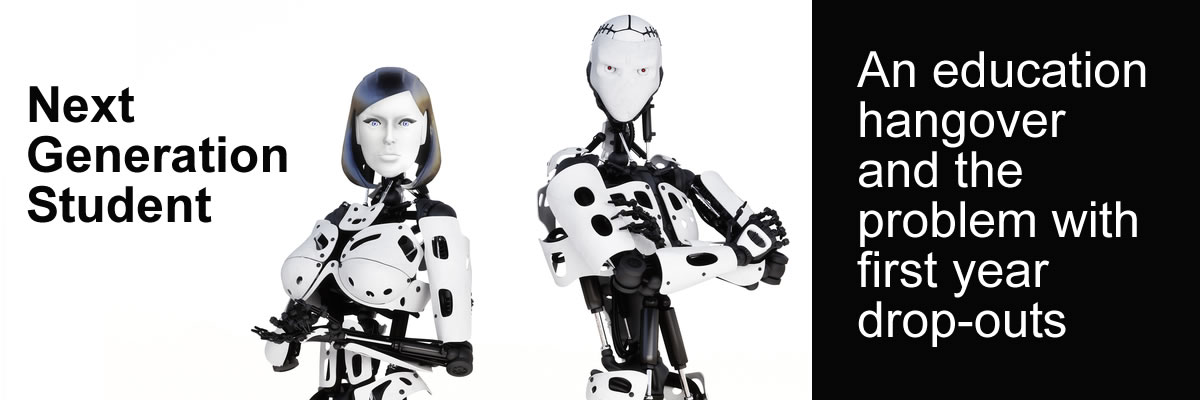
An education hangover and the problem with first year drop-outs *Image credit: Shutterstock, Inc © Digital Storm
- When all the hype of high school graduation fizzes away…
A FirstStep.me feature,
Regions regularly celebrate the completion of an individual’s final year of high school. Top academic results, pass rates and even school leavers’ ambitions are often paraded in the media and hyped up by the press. However, the hype soon disappears and high school is soon forgotten. But it’s the individual who remains the newest member of adult society. Decisions abound for these young adults.
Welcome to the education hangover. The cure is not yet not known – but the after school blues are widespread.
Even though the northern and southern hemispheres have different academic years – school leavers and young adults often spend the whole year trying to figure out the same life changes:
- How to get into a college or university of their choice?
- How to choose a college or university that suits them?
- What academic path will lead to a chosen career?
- Do they need to study to pursue their desired career path?
Figuring out finances for tertiary studies is also common, while finding solutions to upgrading high school qualifications also feature prominently. And don’t forget the bunch of students that are trying to graduate with top results, or those who’re looking for just enough to pass.
Last, but not least is the graduate who is looking for employment – or trying to hold on to employment in the corporate rat race. And somewhere in that whole heap of recent school leavers are those trying to kick-start their own business. Throw in the gap year or sabbatical takers and interns and you have a crazy cocktail of recent school leavers who’re all trying to find their places in the post-school hangover. And just like a hangover, there’s not much you can do about it, but you know full well it will pass. Eventually.
Organisation for Economic Co-operation and Development (OECD) - OECD.org - past education statistics that need to be considered for the future
Population with tertiary education
Adult education level
Enrolment rate 20 - 29
Enrolment rate 15 - 19
Why the rush? The problem with first year drop-outs
With the world’s economic system in what seems to be a seesaw motion of sorts, there is a general rush for individuals to graduate from some form of tertiary education to kick-start their careers, to achieve a salary that is rewarding enough to be sustainable.
This rush can lead to failure, as is illustrated by the high first year drop out rate at university or college level.
Finance and academics are two factors influencing the drop out rate.
However some countries have got it right. Foundation or bridging programmes, post-Matric and a quality high school system all help prepare prospective students for university or college:
A levels, Abitur, Matriculation etc - education systems used in a number of countries which is considered as the starting blocks to enter into university or college level of study. In theory these systems should prepare students for higher education study.
Pre-Med and Pre-Law - used in the American undergraduate system to prepare or ready students for studies in Medicine or Law.
Bridging/Bridge, Pathway, Post Matric and Foundation programs - used at individual level to help the transition of a student into a study program. This can also be done at an institutional level whereby two or multiple institutions partner to allow students to advance their studies after completing theirs at another institution. In a number of cases these programs are built into a study curriculum, therefore courses completed add to an individuals overall degree or diploma qualification. Further there is often the case whereby students are mentored or provided intense attention to assist with their progress. In the case of a Post Matric it is noted at allowing Higher Education studies whilst in a structured High School environment and the option to improve on an individual’s original Matric qualification.
Put differently, these systems either serve as:
A test drive into university or college
An entry point into university or college
Most university or college set-up's have these systems in place so research their websites to find out more.
Knocking on the door but you can’t get in?
Can’t get into a university because of academic requirements? Then try looking at other programmes that you qualify for. These help you navigate towards your preferred study choice later on.
If you can’t get into a university or a college due to financial challenges, spend time brainstorming ways of saving money and creating your own new budget.
College and University Survival Guide Summary:
There is nothing wrong with working and saving to pay for your studies. There is nothing wrong with doing a bridging, foundation or introductory program to get into a degree study route. Remember, the university system is an equal playing field and the factors leading to massive first year drop-outs are the biggest levellers out there. So take your time to choose wisely. Do the research, ask the right questions, look at quality in terms of your education and make your investment count.

